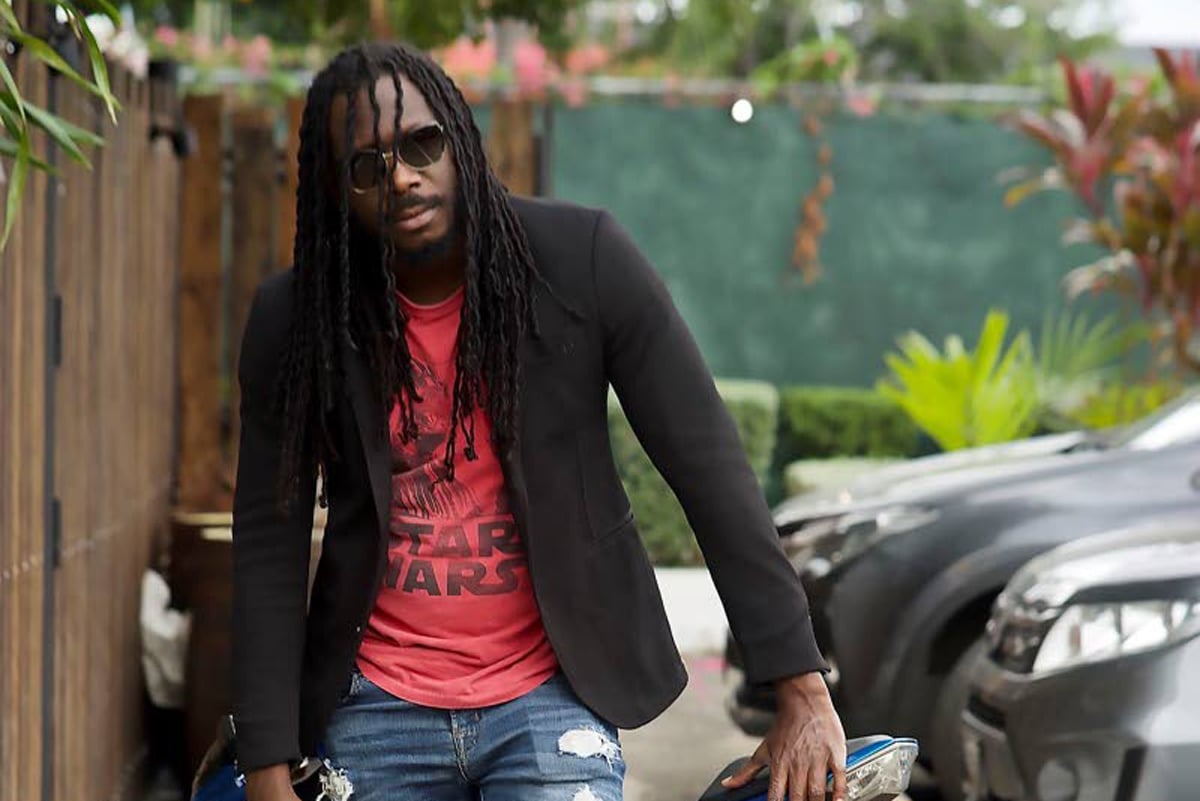Skatta Burrell “Saddened” That Jamaican Trap Songs Won’t Stand The Test Of Time

Dancehall music producer Skatta Burrell has weighed in once more, on the issue of artists and producers creating “highly disposable” music, using Trap beats that all sound alike and are forgotten within months, instead of adding their own creative flair.
Skatta made his comment on a video post he shared of Buddah, the beatmaker of Busta Rhymes’ Put Your hands Where My Eyes Can See, explaining, among other things, how the beat was inspired by that of the song Sweet Green Fields by American Soft Rock duo, Seals and Croft.
“To all Singers and DJs, ever wondered why Your Hit songs only able to last a few months unable to be remembered or played 5 to 10yrs from now???” the Coolie Dance producer began.
“Blame the Producers Who continue to recycle one sound over and over trying to fit in & doing what everyone else does. If every beat You record on has the same groove, same hi-hit, same Snare, same BPM that majority of other artist are voicing on how do You expect to stand out and be superior? Remember this!! 90% OF THE BIGGEST SONGS BEGIN WITH ICONIC BEATS. They go hand in hand,” Skatta warned.
Skatta also rued the fact that many of the songs being produced had good lyrics, but were being stifled by the monotonous beats.
“Bigup the few Who knows and understands this. I respect Producers who actually put creativeness into making music. These days it seems You can rub two sounds together and that’s it. I love the songs coming out but I’m saddened that they won’t stand the test of time and will be just a memory within only a matter of months,” he explained.
“IF I’M NOT INSPIRED NOR MOTIVATED BY IT? THEN TO ME IT’S NOT A LASTING HIT. Side note for those who may criticize My caption please know that 80% of the many Hits I Produced in the 2000s are still shelling dung Parties to this day. #tagadopeproducer,” he added.
There was a flurry of responses from Skatta’s followers, most of whom expressed agreement with his sentiments, some noting that Hip Hop beatmakers have, historically, gone back to oldies musical arrangements, to inspire their beats.
“That beat recycled as well and that’s the whole magic of it because it subconsciously known from the 70’s 80’s,” one commenter said, while another added: “No joke! Plus a lot of new artist now especially in hip hop & r and b using old hits records riddim”.
Skatta got into a verbal tussle with frazeking after the commenter took aim at him stating mockingkly: “Yeah but mi si yuh produce some f-ckry to mi haffi wonda 😂😂😂😂”.
Skatta them wasted no time in responding in kind:
“frazeking, you trying to insult the same producer you tagged on the song you was promoting almost 2yrs ago? If a feelings yuh deh carry, juss know I never ignored your post. I just didn’t see it until today when I decided to look at your page and the first thing that popped up was my name tagged to Your post. Song decent still but the beat beads work,” he stated.
Skatta had made the same observations about the quality of the music being produced, back in July 2020, in an interview on Television Jamaica’s The Entertainment Report.
He had cited Dave Kelly as an example, noting that he used to “sit in the studio and create sounds and merge them together and work with different frequencies and try to get creative with music”.
“People are just taking loops now and putting them together and saying that’s a beat and all a dem sound the same but who am I to say? I’m an old figure in the business, I accomplish so much so I can’t turn round and knock the youths dem. I have to say let’s find a way to bridge the gap,” he had stated.
His compatriot Notnice, in an interview last year, had decried the wanton use of Trap beats which all sound alike, dismissing them as “three-month music”.
He had also said that many of the beats were “built by some international persons and the kids who sell them online”, and then leased for the artists to sing on them for US$50 to US$100. These beats he said, are non-exclusive, and can be used by multiple artists.
“You are putting money in some kid’s pocket out in some far corner of the world, but it’s really not authentically Jamaican,” Notnice had said.
